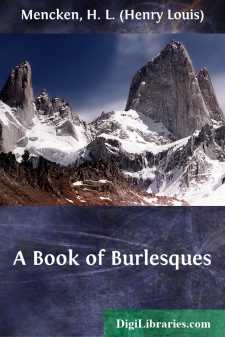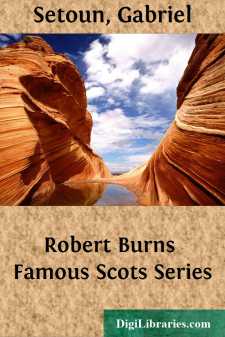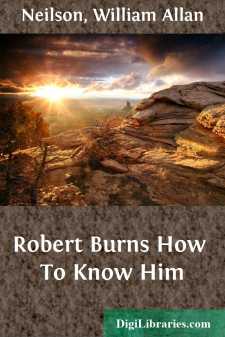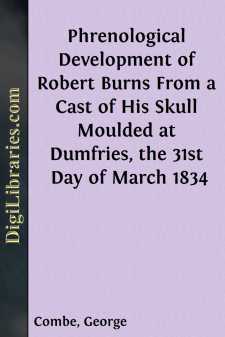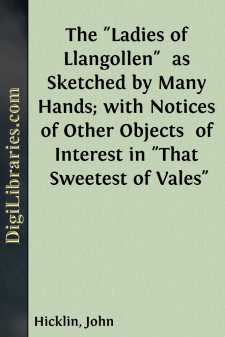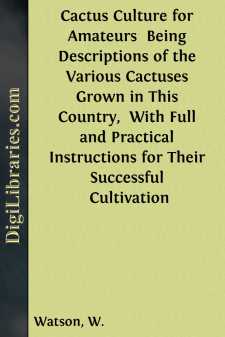Non-Classifiable
- Non-Classifiable 1768
Non-Classifiable Books
Sort by:
by:
Alexander Whyte
INTRODUCTORY ‘The express image’ [Gr. ‘the character’].—Heb. 1. 3. The word ‘character’ occurs only once in the New Testament, and that is in the passage in the prologue of the Epistle to the Hebrews, where the original word is translated ‘express image’ in our version. Our Lord is the Express Image of the Invisible Father. No man hath seen God at any time. The only-begotten...
more...
by:
John Bunyan
This treatise is one of those ten distinct works, which the author had prepared for the press, when he was so suddenly summoned to the Celestial City. Well did his friends in the ministry, Ebenezer Chandler and John Wilson, call it "an excellent manuscript, calculated to assist the Christian that would grow in grace, and to win others over to Jesus Christ." It was first published, with a...
more...
I.—DEATH I.—Death. A Philosophical Discussion The back parlor of any average American home. The blinds are drawn and a single gas-jet burns feebly. A dim suggestion of festivity: strange chairs, the table pushed back, a decanter and glasses. A heavy, suffocating, discordant scent of flowers—roses, carnations, lilies, gardenias. A general stuffiness and mugginess, as if it were raining outside,...
more...
by:
Gabriel Setoun
BIRTH AND EDUCATION Of the many biographies of Robert Burns that have been written, most of them laboriously and carefully, perhaps not one gives so luminous and vivid a portrait, so lifelike and vigorous an impression of the personality of the poet and the man, as the picture the author has given of himself in his own writings. Burns's poems from first to last are, almost without exception, the...
more...
CHAPTER I BIOGRAPHY “I have not the most distant pretence to what the pye-coated guardians of Escutcheons call a Gentleman. When at Edinburgh last winter, I got acquainted at the Herald's office; and looking thro' the granary of honors, I there found almost every name in the kingdom; but for me, My ancient but ignoble bloodHas crept thro' scoundrels since the flood. Gules, purpure,...
more...
by:
George Combe
The cast of a Skull does not show the temperament of the individual, but the portraits of Burns indicate the bilious and nervous temperaments—the sources of strength, activity, and susceptibility; and the descriptions given by his contemporaries of his beaming and energetic eye, and the rapidity and impetuosity of his manifestations, establish the inference that his brain was active and susceptible....
more...
by:
Thomas Wright
Fifteen years have elapsed since the death of Sir Richard Burton and twelve since the appearance of the biography of Lady Burton. A deeply pathetic interest attaches itself to that book. Lady Burton was stricken down with an incurable disease. Death with its icy breath hung over her as her pen flew along the paper, and the questions constantly on her lips were "Shall I live to complete my task?...
more...
by:
John Hicklin
THE LADIES OF LLANGOLLEN. From the early age of Cambrian history, when the peerless beauty of the high-born Myfanwy Fechan awoke the passion and the poesy of her admiring bard, Howel ap Einion Llygliw, down to the modern days of the more humble, but not less renowned maiden, “Sweet Jenny Jones;” Llangollen, “that sweetest of vales,” seems to have been associated with recollections of tender and...
more...
by:
John Morley
BYRON. It is one of the singular facts in the history of literature, that the most rootedly conservative country in Europe should have produced the poet of the Revolution. Nowhere is the antipathy to principles and ideas so profound, nor the addiction to moderate compromise so inveterate, nor the reluctance to advance away from the past so unconquerable, as in England; and nowhere in England is there...
more...
by:
W. Watson
INTRODUCTION. HE Cactus family is not popular among English horticulturists in these days, scarcely half a dozen species out of about a thousand known being considered good enough to be included among favourite garden plants. Probably five hundred kinds have been, or are, in cultivation in the gardens of the few specialists who take an interest in Cactuses; but these are practically unknown in English...
more...




